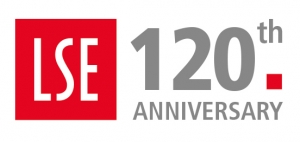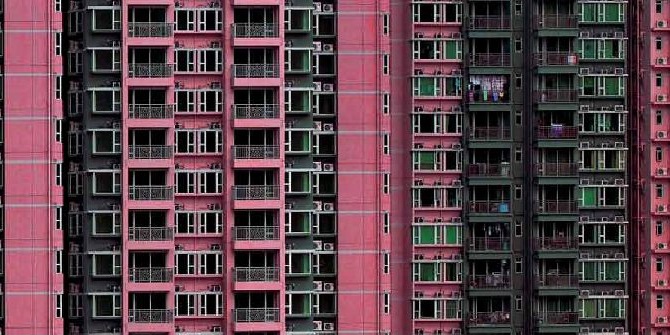LSE Cities researcher Harry Blain shares the history of the Urban Age Programme, which celebrated its 10th anniversary in 2015.
Although more than half the global population is now urban dwelling, we are still a long way from resolving some of the major challenges and contradictions of life in the city. Indeed, Alexis de Tocqueville’s comments on Manchester in 1835 could surely be applied to many of the world’s cities today. He observed “human beings ceaselessly at work”; the “wretched dwellings of the poor” alongside “huge palaces of industry”; and “a sort of black smoke” covering the city, turning the sun into “a disc without rays.” He captured the extreme contrasts of the industrial revolution as he summarised its birthplace as a “foul drain” producing “the greatest stream of human industry”, a “filthy sewer” from which “pure gold flows.”
The birth of the Urban Age Programme stemmed from the conviction that cities reflect not only our most acute problems but also our great innovations, opportunities and solutions. An initiative of LSE Cities’ Ricky Burdett, Philipp Rode, Richard Sennett, and Deutsche Bank’s Alfred Herrhausen Society, the first Urban Age conference was held in New York in February 2005. Here, the Superintendent of the New Jersey State Police discussed public life and urban space with sociology professors, while architects, planners and mayors debated strategies for financing and managing urban transport. This diversity of views and participants has been a feature of all thirteen subsequent conferences, from Shanghai in July 2005 to Delhi in 2014.

The Urban Age conferences were imagined, in Deyan Sudjic’s words, as:
a kind of comparative clinical testing… bringing together academic specialists with individuals concerned with the day-to-day shaping of urban policy.
The conferences themselves and their accompanying newspapers have, above all, been about exploring the relationship between the physical and the social: how Hong Kong’s high density affects the mental health of its residents; how Delhi’s rapid expansion impacts on its informal neighbourhoods; how the 2012 Olympics has shaped London’s most concentrated pockets of deprivation. Such questions speak to the complexity of individual cities, as well as potential lessons for wider common challenges of social inclusion, governance, mobility and environmental sustainability.

As such challenges are discussed during the upcoming Urban Age Global Debates and chronicled through the new Urban Age digital platform, cities themselves will be evolving, adapting and, inevitably, struggling. Since the first Urban Age conference, bus fare increases have brought riots to the streets of Rio and Sao Paulo, average monthly rents in London have reached £1,500 for the first time, and Shanghai’s metro system has become the longest in the world.

Events and human forces move faster than mayors, architects and academics, and the Urban Age has had to grapple with this unpredictable and contested terrain. In the future, as the pace of urbanisation accelerates worldwide, this terrain will only become more daunting and complex. At the same time, the task of understanding and improving life in the city will only become more pressing.
For further information about Urban Age and LSE Cities visit the website or follow @LSECities and #urbanage10 on Twitter
This post was published during LSE’s 120th anniversary celebrations



